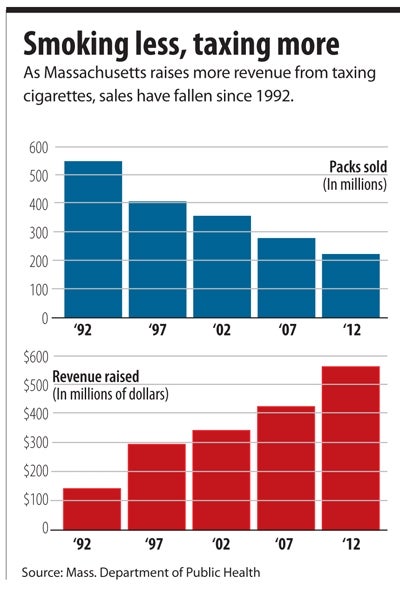No one appreciates being told what to do. That’s how many kids view strict parents, and how many business leaders view onerous government regulation. Government intrusion through new laws and regulations, as justified as they may be, rarely receive warm receptions.
But it’s a different story when business leads the way down the path of change, especially when that change can benefit the greater good. Earlier this month, the national drug store chain CVS took the bold step of announcing an end to tobacco sales as of Oct. 1. The move will cost it $2 billion in annual revenue, but for a company with about $127 billion in annual sales, that’s not even a 2-percent top-line hit. But as society is placing a stronger emphasis on healthier living that will lower the cost of health care, CVS is well into its transformation to a multi-faceted health care organization from just pharmacy and retail. It has been an innovator in its field, having introduced low-level health care services in its stores through its popular Minute Clinics.
Health care reform holds out the promise of growing the ranks of the insured, meaning more revenue opportunities for a wide variety of providers. So, pragmatically, how much longer long could CVS have continued expanding its health care offerings while continuing to sell a product proven to reduce life expectancy and increase the cost of health care? The company’s action to remove cigarettes from its shelves is consistent with its goal of making people healthier. After all, it’s hard to justify telling someone to stop smoking after monitoring his blood pressure while you’re also selling cigarettes at the next counter.
As for the impact of the CVS announcement itself, it’s not unprecedented among large retailers (Target Stores announced a similar ban in 1996), but the company’s position as the second-largest pharmacy chain in the United States, with more than 7,500 stores, can potentially lead others to take similar action. And in a nation with growing concerns over rising health care costs, especially as they impact the business sector, actions by large employers can lead others to act.
Government action can prod and discourage, but that alone will not snuff out tobacco use. Last year, Massachusetts raised its cigarette tax from $2.51 to $3.51 per pack, the second-highest levy behind New York, which charges $4.35. But while cigarette sales in the Bay State plummeted nearly 60 percent from 1992 to 2012, an estimated 221 million packs were sold in 2012, according to the Massachusetts Department of Public Health. And according to the Centers for Disease Control, the Bay State ranked ninth among the states in 2011 in adult tobacco use, with an estimated 18.2 percent of adult cigarette smokers.
The CVS “action reinforces a powerful message that tobacco harms and kills and that tobacco has no place in a facility whose primary purpose is health care,” said Dr. Ronald Dunlap, president of the Massachusetts Medical Society. “Most importantly, it will help to save lives, reduce illness, and contain health care costs.”
We hope his assessment is right, and that other businesses will consider following suit. The threat of cigarette smoking is not akin to that of global warming, where some people are waiting for more evidence to become believers. The evidence is all in on smoking, and the more the private sector can do to accelerate its demise, the better off society will be.

